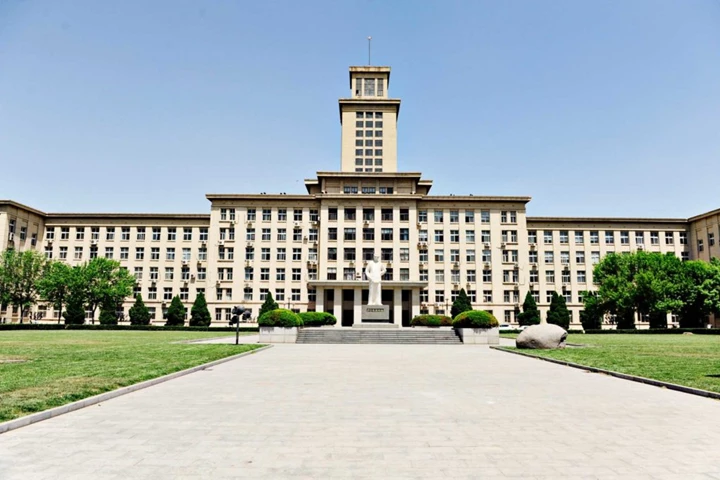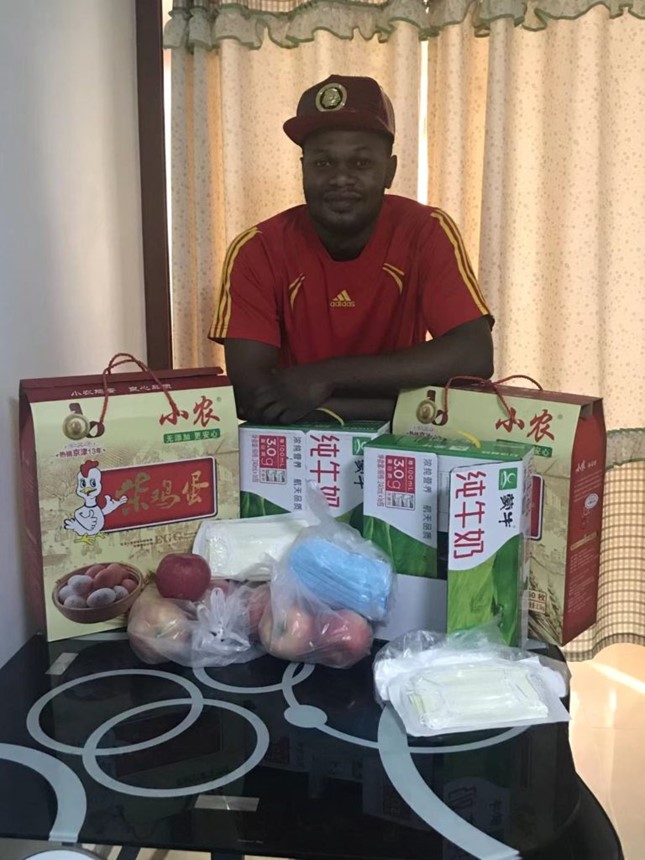First-wave supporters: INTO China sees international students through COVID-19 crisis

Before the COVID-19 outbreak led universities in Europe and North America to implement physical distancing policies, universities in China had to face the emerging realities of what is now a global pandemic. In partnership with Nankai University, INTO has seen a cohort of 43 international students through a campus lockdown and University-wide transition to online learning since late January. Now, they are helping students adapt to life under less stringent quarantine measures.
Tingzhen Dong, student services manager for INTO China, first reached out to students about the novel coronavirus on January 21st—the same day the Chinese government confirmed human-to-human transmission of the virus and initiated a nationwide lockdown. Because the University is in Tianjin, a city of more than 11 million people, it was quick to close campus to visitors and nonessential personnel.
As the lockdown began, the INTO China team “confirmed every student’s status, including their location, travel history in January, travel plans for the following weeks, and whether they had close contact with people from Wuhan city or Hubei province,” explains Dong. Once students were accounted for, Dong and team instructed those who had not yet arrived in China to cancel their travel plans and prepare to begin courses online. They then “helped students register in a University system where they report their daily health status,” says Jacqueline Qin, student services coordinator at INTO China.
Students who had already arrived on campus before February 17—the planned start of the spring semester—were asked to remain there while complying with temperature checks at the entrance of dormitories and the campus canteen. Since the start of the outbreak, all students have submitted daily health status updates to the University.
As the University moved classes online, INTO kept in close contact with students via WeChat, e-mail, and phone, to help them start their semester. They translated Mandarin guidance for online learning platforms like Zhihuishu and Yuketang, reported problems students had with those platforms to the University, and gathered students’ feedback and advice about online learning to create a resource for the entire cohort.
“Within one week, we helped students register on three different platforms for distance learning, and assisted students to overcome the language issue, time difference problems, and internet connection issues,” says Dong. “We also supported professors to get in touch with students via e-mail and WeChat.”

Outside of the virtual classroom, the INTO China cohort at Nankai University have dealt with new anxieties that stems from a level of uncertainty many are facing for the first time due to COVID-19. In addition to providing students with a point of contact available 24/7 for emergencies, information about protecting themselves and seeking treatment for symptoms, and updates on University efforts to mitigate spread, the INTO China team has checked in with each student every day to ease concerns. They have also secured students’ access to an English-speaking hotline for no-contact counseling services from the Beijing branch of the United Family Hospital.
More than information, Nankai University and INTO delivered vital supplies to students on campus and in Tianjin during the peak of the outbreak. When these international students were unable to purchase masks online, the INTO China team secured and delivered 250 masks. And when students felt uncomfortable navigating through an unfamiliar city to buy groceries, the University delivered essentials like eggs, milk, and fruit for their meals.
For Arnaud Edoung Atangana, a Cameroonian student pursuing a degree in business administration, the information and supplies made a frightening situation more manageable.
“The case is stressful because it is the first time in my life witnessing such a situation,” says Atangana. “INTO and the University gave us masks when there was a shortage in the country, and they offered food and guidelines to avoid catching the virus. Thanks to my family and INTO staff, I feel more confident and optimistic.”

Mary Wambui, a student from Kenya pursuing a degree in medicine, echoed Atangana’s sentiment:
“The University and INTO are helpful in getting us masks and making sure we are safe. We have early morning check-ups to make sure we are not sick.”
Since the start of the outbreak, Dong and Qin have been struck by how students have come together to support each other during quarantine.
“I feel relief when I see students caring for each other by sharing information in WeChat,” admits Dong. “There are even some students in their home country who are checking INTO staff’s safety and telling us: stay at home, wash your hands… I feel we are together.”
In March, after the lockdown across China effectively lowered the number of new reported cases, INTO staff were able to touch base with international students in Tianjin in person.
“On 21st March, we visited students currently living in Tianjin, bringing water, masks, and disinfecting wipes provided by Nankai and learning students’ concerns and questions regarding life and study in the city and the COVID-19 prevention in their neighborhood,” says Dong. This initial visit was followed by a second round of visits in early April.
Students now have access to more in-person services and may request that an INTO China staff member accompany them to the hospital, bank, or grocery store. While students continue to physically distance themselves from each other, “it has given me hope to see all students keep studying and learning more while facing difficulties and self-isolation,” says Qin.
The University continues to require students to update their health status daily and submit to temperature checks as they enter and leave campus. As quarantine measures become less strict and a new, post-virus normal emerges, staff and students are staying the course and look forward to a time when they can enjoy each other’s company in and out of the classroom.
“It is crucial to continue the program despite the situation,” adds Atangana. “I am focusing on my studies by staying confident that the situation will go back to normal and I will get to meet my classmates when we return to campus.”